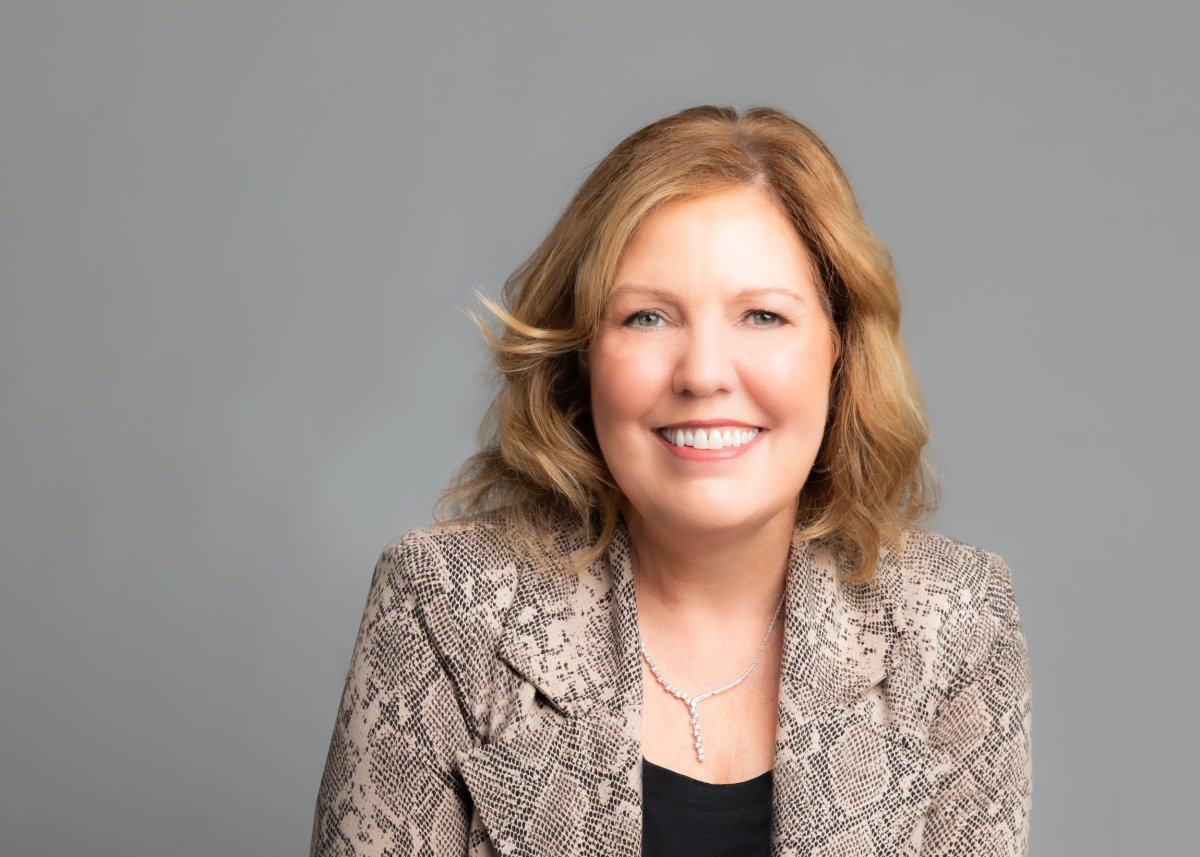When the COVID-19 pandemic hit the U.S. in early 2020, many industries stalled operations due to travel restrictions and lockdowns.
One of the companies that took a hit was Access DMC, a destination management and licensing company that has been around for over five decades. As a company, Access plans and coordinates professional meetings and events across the country.
Back in 2018, the company was sold and Chief Sales Officer Jennifer Miller, who previously served as Access’ sales manager and regional president, was appointed as the company’s first female CEO. But when COVID lockdowns began 20 months later, no one was taking trips or planning large group events.
As business came to a halt, so did investor support. Once those investors divested from the company, Miller and two of her colleagues decided to buy the company and transform the business.
“The day we bought the company back from the investors, the two things we decided right away was we were going to keep the company values and find meaningful ways to drive them, and we were going to create a best-places-to-work environment,” Miller told Newsweek.
Access is featured in Newsweek‘s 2024 ranking of America’s Greatest Workplaces for Women, compiled in partnership with data firm Plant-A Insights Group. More than 142,000 working women were surveyed to identify the key indicators that create a positive work environment for female employees—including fair hiring practices, trust and transparency from the company, competitive salaries and healthy work-life balance.
The ranking features 1,000 companies spread across 78 professional industries, including health care providers, as well as consumer, financial and business services. Over one hundred of the companies featured are led by women, according to Plant-A, and 55 of those achieved a rating of five stars, the highest rating available.
According to the Bureau of Labor Statistics, women made up more than half of the workforce in 2023, but, for perspective, only 41 of all S&P 500 companies have a woman at the helm, per a recent Bloomberg report.
Access is among the small companies on Newsweek‘s Greatest Workplaces for Women list (meaning those with 500 to 999 employees) to earn a five-star rating and to also be led by women.
The leader of a company sets the tone and expectations for employees. Researchers at Columbia Business School found that putting women in positions of power can transform organizational culture, and companies that hire female CEOs and board members are more likely to transform the way an organization uses language, to be more inclusive and less harmful to women.
Access DMS
At Access, a company with an 87 percent female workforce, Miller now serves as co-CEO with Access’ Chief Creative Officer Danielle Phippen and Chief Events Officer Heidi Brown.
“Today, the company, through the leadership of the three of us, is bigger than it’s ever been,” Miller said.
Since becoming a women-owned and -led company amid the hospitality industry shutdown in 2020, Access has grown from zero to $175 million in revenue and has expanded from five to 1,500 employees in 40 locations across the country, Phippen said.
While the number of female CEOs has increased generally in recent years—there were 22 women leading S&P 500 companies in 2016, before the increase to 41—women still face structural barriers when climbing the corporate ladder.
Women tend to drop off that ladder once they begin having families. As Sandrine Devillard, senior partner at McKinsey Canada, noted last year, many women are skipped over for promotions in their childbearing years due to biases and misconceptions about women’s abilities to lead when balancing work and family responsibilities.
The co-CEOs of Access have experienced many of the same struggles their employees face, and try to serve as models for a positive work-life balance. According to Phippen, “there is not a job in the company” that she and her fellow CEOs have not done—whether it’s writing proposals or holding a sign on a street corner directing clients to a large event.
“We’ve done all of those jobs, and we have all done life as women,” she said.
Because of that, the three CEOs say they want their female employees to feel supported as they advance in the company, while also fulfilling family and other personal obligations.
For Gina Drosos, another CEO, transformation has always been a part of her career.
She is the CEO of Signet Jewelers, which encompasses several smaller jewelry firms—including KAY Jewelers, Zales, Jared, Blue Nile and Diamond Direct—and is one of the large companies on our list (those with 5,000 or more employees) to achieve a rating of five stars.
Drosos is no stranger to joining a company and, in a short time, taking it to new heights. She started her career at Procter & Gamble, rising in the ranks to cosmetics, where she transformed Olay as group president of global beauty from a $200 million business to a $2.5 billion business by the time she left P&G.
Drosos told Newsweek that she “never wastes a crisis” because every issue creates opportunities to grow and gain competitive advantages.
At the time she signed on to lead Signet, in 2017, the company’s website needed improvement. Drosos began an initiative to bolster online jeweler consulting and build enough of a digital presence so that by 2020, online sales increased during the COVID-19 pandemic—a “tumultuous” time for jewelers and the entire retail world, Drosos said. According to Signet, the company’s market capitalization quadrupled from less than $1 billion at the start of the pandemic to $3.9 billion today.
When she joined Signet, Drosos embarked on “Gina’s listening tour,” in which she spent time in stores and traveled to different U.S. and global facilities, headquarters and factories.
“I went and I listened to what the people in the organization were saying, and what they were saying was that they felt they were being held back by our hierarchical culture,” Drosos said, adding that the company was spending too much time trying to get routine tasks done and not enough time driving innovation in the business.
Drosos credits her success as a leader to being inclusive, setting a vision and agreeing on which strategies to focus on and hiring great talent, while breaking down barriers that get in the way of workers doing their jobs successfully.
“I came in at a time when Signet was a very troubled company and, with a great team, with great talent, with a new culture, with a more distinctive strategy and getting our financial health into shape, we’ve been able to transform this company,” she said. “And that’s great, but sometimes it’s harder to start from a deficit to do that than it is to start with something great and make it greater. And I think that is something women, percentage-wise at least, face more often than men.”
Under her tenure, Signet increased female representation at the highest levels of the company.
Drosos said the key to eliminating the “glass cliff” is to create more pathways to senior management positions for women, so female employees can be placed in “crucial roles” earlier. (The “glass cliff,” a phrase coined by researchers at the University of Exeter, refers to when companies appoint women to positions of leadership when the organization is failing or facing crisis, setting women up for failure.)
“Giving women [management] opportunities earlier in their career gives them visibility, gives them more coaching and development,” she said. “If you’ve created a great pipeline of very versatile women in your organization who’ve worked on growing a business and fixing a declining part of the business, they will be more prepared for that top job.”
When she joined the Signet Board of Directors, she was only the second woman to serve on the board. Now the board is 42 percent women. Additionally, nearly 60 percent of people at the director level and 75 percent of store assistant managers are female. There are also business resource groups to support different demographics, including female, Hispanic and Black employees, as well as training courses to overcome personal biases to prevent discrimination in the workplace.

Signet Jewelers
Meanwhile, over the past few years at Access, Miller noted that the leadership team has worked to not only hire and train hundreds of people, but also build the infrastructure for the business to keep up with the rapid pace of growth, and support the next generation of female leaders.
Miller said that there are women who have worked at Access for 10 or 20 years who have gone through “a female lifecycle.” She adds that in the span of three years, there were 27 babies born to employees. These women are able to grow their families while advancing through the company, Miller said, meaning they don’t have to choose between having a child and getting a promotion.
Keeping women in the workforce longer allows them to gain more experience and take on more responsibilities so that they can naturally move up into senior management roles.
Career coach Nikki Innocent said corporate executive jobs come with a lot of expectations—including working hours that are not set up to support “multifaceted women” who juggle many responsibilities.
“We need to reform what leadership and C-suite leadership looks like to allow for these women with these other aspects of their lives, that may not be seen as their job, are actually the things that make them invaluable in their leadership,” she said. These skills, according to Innocent, include empathy, flexibility and open communication, allowing both senior staff and their employees to bring their full selves to their jobs.
“The flexibility and the inherent trust that you’re looking for an organization to have in you and what you’re able to do, what you’re able to produce, is more important than exactly how you’re able to produce it in the way that, like, Joe and Jim and John did before you,” Innocent said.
As these four CEOs demonstrate, implementing policies that benefit every step of a woman’s career can lead to more success—not only in terms of profit, but in company culture as well.
“We try to model for everyone [that] we work a lot, we invest a lot in leadership training, in sharing our values, in living our values and rewarding people,” Phippen said. “We’re achieving business success, but we’re not doing it at the expense of our people.”
Uncommon Knowledge
Newsweek is committed to challenging conventional wisdom and finding connections in the search for common ground.
Newsweek is committed to challenging conventional wisdom and finding connections in the search for common ground.


